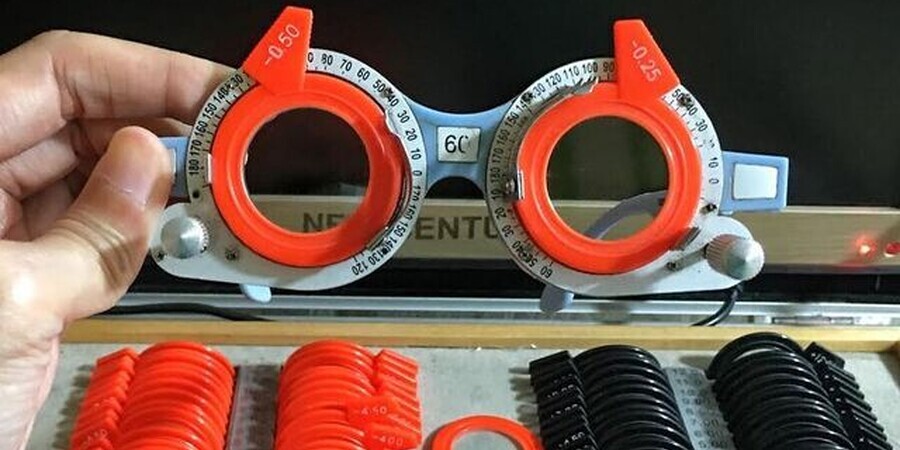Philadelphia, PA
- When it comes to maintaining good health, our eyesight plays a vital role in our overall well-being. Medicare, the federally funded health insurance program, understands the significance of vision health and offers coverage for certain vision services and treatments. In this comprehensive guide, we will explore how Medicare covers vision services and treatment, ensuring you have a clear understanding of what is included and how to make the most of your benefits.
Understanding Medicare and Vision Services
Medicare, the healthcare program that has been a steadfast companion to millions of Americans, consists of different parts that address specific medical needs. While Original Medicare (Part A and Part B) is the foundation, it's essential to remember that it primarily focuses on medically necessary services and treatments. Unfortunately, under this basic plan, routine vision care, such as eye exams for glasses or contact lenses, generally falls outside its coverage.
Medicare Part A, often referred to as hospital insurance, plays a crucial role in covering inpatient care, skilled nursing facility stays, and some home health care. While this part of Medicare might provide coverage for specific eye-related emergencies, such as a traumatic injury requiring hospitalization, it is not the primary source for routine vision services or treatment.
On the other hand, Medicare Part B, which encompasses outpatient services and preventive care, offers a limited scope of coverage for certain vision-related services. Part B may cover some diagnostic tests and treatments for eye conditions, such as macular degeneration or glaucoma. However, it's important to note that routine eye exams for the purpose of prescribing eyeglasses or contact lenses are generally not covered under Part B unless they are related to a medical condition, such as diabetes.
A Kaleidoscope of Coverage: Medicare Advantage (Part C)
If the palette of Original Medicare leaves you desiring a more comprehensive spectrum of coverage, Medicare Advantage (Part C) might be the canvas you're looking for. Part C plans, offered by private insurance companies approved by Medicare, often go beyond the boundaries of Original Medicare by providing additional benefits, which may include routine vision services.
These plans may cover annual eye exams for prescription glasses or contact lenses, and some may even include allowances for frames and lenses. Furthermore, some Medicare Advantage plans might encompass a broader range of eye care services, such as treatment for dry eyes, cataracts, or other non-emergency vision issues. Exploring the offerings of various Part C plans can lead you to a more vivid and personalized vision care experience.
Filling the Coverage Gaps: Medigap (Supplemental) Insurance
Medigap plans are designed to work alongside Original Medicare, helping to cover some of the costs that Medicare Part A and Part B do not fully pay for. However, when it comes to vision services and treatment, it's essential to approach the Medigap landscape with a discerning eye. While Medigap plans may cover some of the out-of-pocket expenses associated with Medicare-approved eye surgeries or treatments, they generally do not include routine vision care. Beneficiaries seeking comprehensive vision coverage often need to explore other avenues, such as standalone vision insurance or Medicare Advantage plans.
A Spectrum of Options: Standalone Vision Insurance
For those who wish to paint their own vision care masterpiece, standalone vision insurance can be a valuable addition to your portfolio. While Medicare itself may not provide coverage for routine eye exams and corrective lenses, standalone vision insurance plans are readily available from various insurance providers. These plans typically cover a wide array of services, including routine eye exams, eyeglasses, contact lenses, and even discounts on laser eye surgery.
Before setting your sights on standalone vision insurance, conducting thorough research and comparing different plans is essential. Consider factors such as monthly premiums, copayments, network providers, and the scope of coverage offered. By doing so, you can tailor your vision care strategy to match your individual needs and preferences.
Accessing Low-Income Assistance
In our exploration of Medicare's vision coverage landscape, we must illuminate the pathways available to those with limited financial resources. Low-income beneficiaries may qualify for additional assistance programs, such as Medicaid or Extra Help (Low-Income Subsidy), for prescription drug coverage.
Medicaid, a joint federal and state program, provides comprehensive medical coverage, including routine vision services, to eligible individuals with low income. While Medicaid eligibility criteria and covered services vary by state, it can offer a lifeline to those seeking comprehensive vision care.
Extra Help, on the other hand, specifically assists with prescription drug costs under Medicare Part D. While it doesn't directly cover routine vision care, the financial relief it provides for medications can free up resources to invest in standalone vision insurance or other vision-related expenses.
Remember, the key to a vibrant and fulfilling vision care journey lies in understanding the nuances of your Medicare coverage options. By aligning your needs and preferences with the available avenues, you can create a masterpiece of personalized vision care that enriches your quality of life. Remember, each decision you make shapes your path toward a clear, healthy vision and a brighter future.


